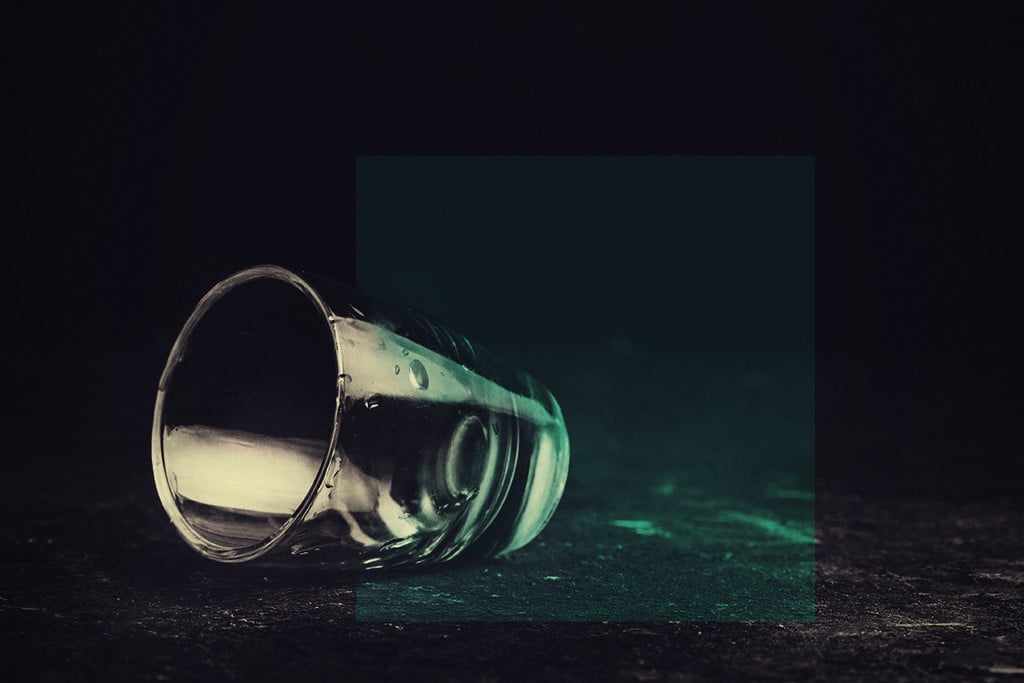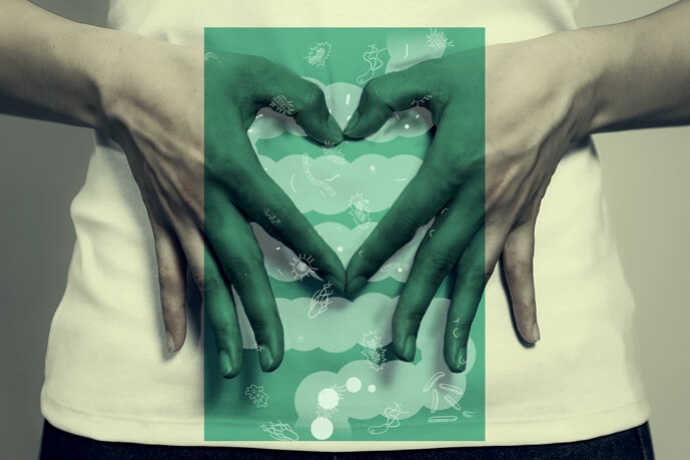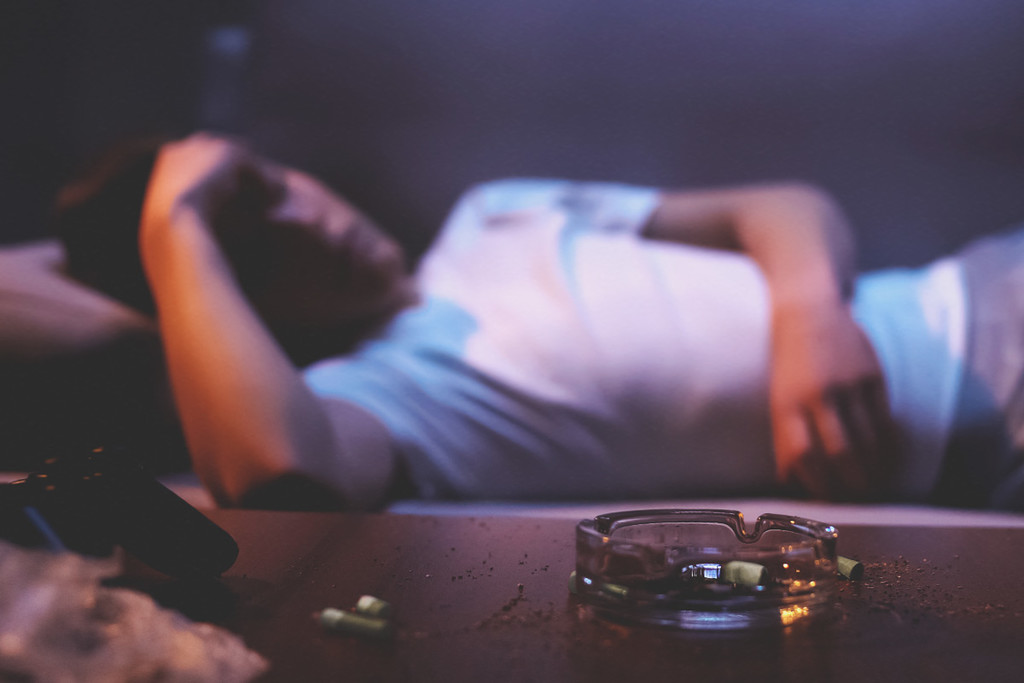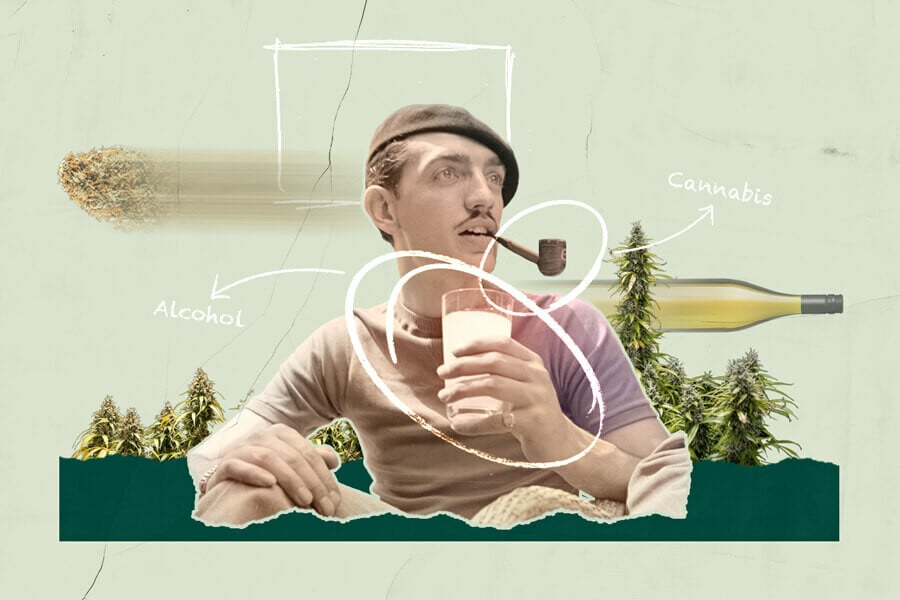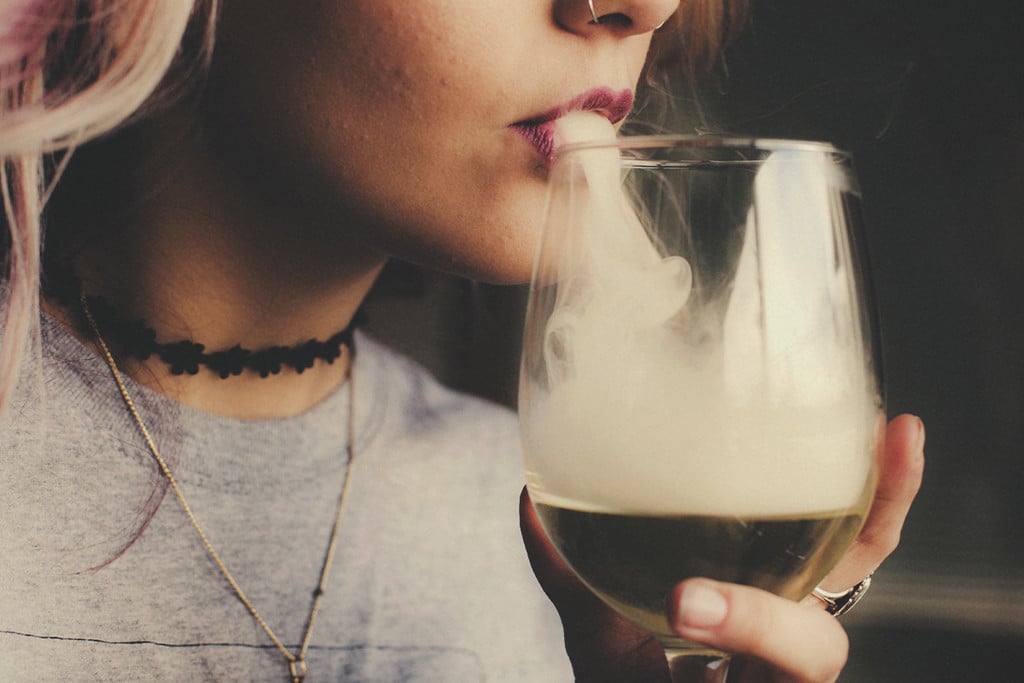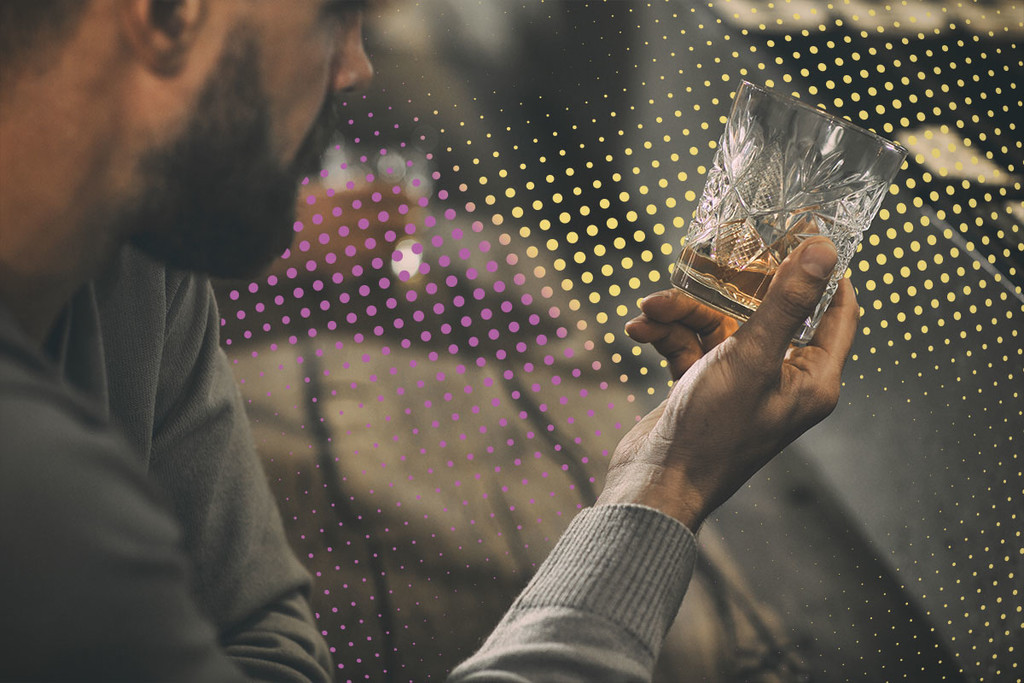.

Could CBD Help Your Hangover?
What's your hangover plan? Do you feel sorry for yourself and refuse to get out of bed? Do you take a proactive approach and head downstairs to guzzle some water and cook a big breakfast? In the future, you might decide to include CBD in your hangover regimen. Find out if the cannabinoid has a role to play in nursing a hangover.
Contents:
Alcohol is truly a double-edged sword. On one hand, a couple of drinks can put us in the mood to socialise and engage in some interesting conversations. On the other hand, going overboard and drinking too much can lead to days of sickness and suffering when the party ends. The severity of hangovers varies from person to person; some brush it off and head out for round two, whereas others become bed-bound with headaches and nausea.
But people that drink regularly are often prepared for what awaits the following day. They have a strategy at the ready to beat back the dreaded symptoms as best they can. While some reach for more booze in the morning (this is unthinkable for many), others swear by drinking a few pints of water before hitting the hay.
In this article, we'll cover the potential relationship between CBD and hangovers. After digging into the science of hangovers, we’ll look at what the research says regarding CBD and certain hangover symptoms.
What Is a Hangover?
You had a great night. You caught up with friends you hadn’t seen in a while, and conversation flowed effortlessly. After hitting the sack at 2 am, you wake up strangely early at 8 am with a throbbing headache and a dry mouth in a spinning room. Those, my friend, are the symptoms of a hangover. But what causes them in the first place, besides necking too much booze?
Well, the excessive consumption of alcohol leads to the suppression of vasopressin, an antidiuretic hormone tasked with instructing the kidneys to hold on to water. Because alcohol inhibits the function of this molecule, the body loses excess fluids and becomes dehydrated. Beyond dehydration, alcohol affects the body in myriad unpleasant ways.
As the liver breaks down alcohol, it converts it into acetaldehyde[1], a toxic byproduct that sparks inflammation in the brain, liver, and other organs. But it’s not just alcohol that leads to the harsh feelings of a hangover. Other compounds found in alcoholic drinks, such as congeners and sulfites, are known to worsen hangover symptoms and underpin headaches.
What Are the Symptoms of a Hangover?
People experience different hangover symptoms based on the amount they drank the night before, and the steps they took to mitigate the symptoms before going to bed. Overall, the symptoms of a hangover include:
| Fatigue and weakness | Nausea and vomiting | Stomach pain |
| Dizziness | Irritability | Sweating |
| Elevated blood pressure | Anxiety | Sensitivity to light and sound |
| Fatigue and weakness | Nausea and vomiting | ||||||
| Stomach pain | Dizziness | ||||||
| Irritability | Sweating | ||||||
| Elevated blood pressure | Anxiety | ||||||
| Sensitivity to light and sound | |||||||
|---|---|---|---|---|---|---|---|
Are Hangovers Dangerous?
Have you ever had a hangover so severe that you felt close to death? You know, those events where your heartbeat feels weak, you can’t stomach food, and the room won’t stop spinning? While these kinds of hangovers feel horrific, they aren’t a cause of death, at least not in isolation.
The sensations of a hangover begin to creep in when blood alcohol levels drop, meaning you have to deal with the fallout of your bad decision as the body starts to purge it out. However, alcohol poisoning can kill (it results in around six deaths each day[2] in the United States), but involves a constant increase of alcohol in the bloodstream to the point of seizures, confusion, and unconsciousness.
Simple Steps to Ease a Hangover
If you drink regularly, you’ve probably drawn up a customised battle plan to help offset the effects of a good night out. Everyone has a slightly different approach, but each strategy likely includes at least one of the methods listed below.
1. Drink Fluids
As stated, excess alcohol messes with our biochemistry and forces the body to expel water it would otherwise hold on to. Therefore, it makes sense to try and replace some of those precious fluids while enduring the throes of a hangover. Drinking plenty of water can help to counter the effects of dehydration and improve your symptoms. Additionally, grab a sports drink or slice of watermelon to get some electrolytes into your body.

2. Hair of the Dog
At first, this solution seems nothing less than barbaric. The term “hair of the dog” derives from the longer phrase “hair of the dog that bit you”. This saying hints that the poison might also work as the remedy—at the correct dose.
But can drinking another pint or slurping down a Bloody Mary really improve hangover symptoms? As we mentioned above, symptoms kick in when blood alcohol levels decrease, and climax when levels reach zero. Therefore, adding some more alcohol into the mix could help your levels descend more slowly. Drinking also leads to an increase of endorphins (happy chemicals) in the brain. If you can stomach another drink, it might help to perk you up and deal with the situation better.
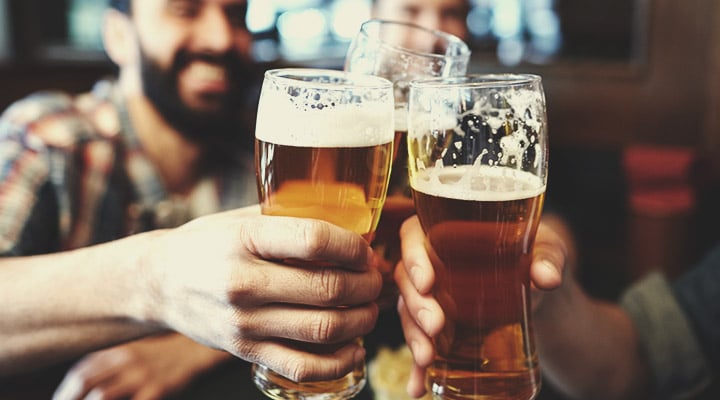
3. Take Some Vitamins
Not much research backs up the use of vitamins and supplements to derail hangovers. However, a study[3] (with small sample size) published in the Journal of Clinical Medicine looked at what subjects ate before drinking. It turns out that those that consumed more B vitamins and zinc experienced less brutal hangovers the following day.
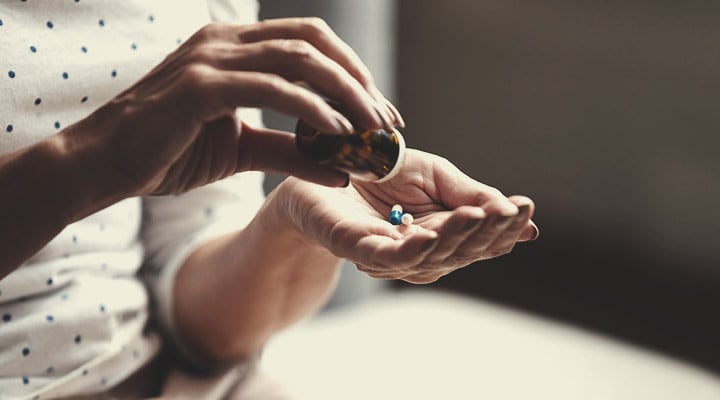
4. Eat a Hearty Breakfast
The body burns through a lot of nutrients while working hard to metabolise and eliminate alcohol. A hearty breakfast can help to replenish vitamins and minerals while supplying you with enough carbohydrates to raise your blood sugar and give you some much-needed energy. Anything from a fry-up to a bowl of oats and some fruit should do the trick.
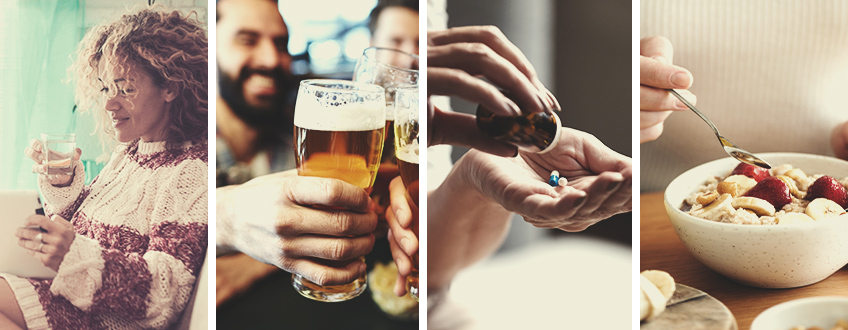
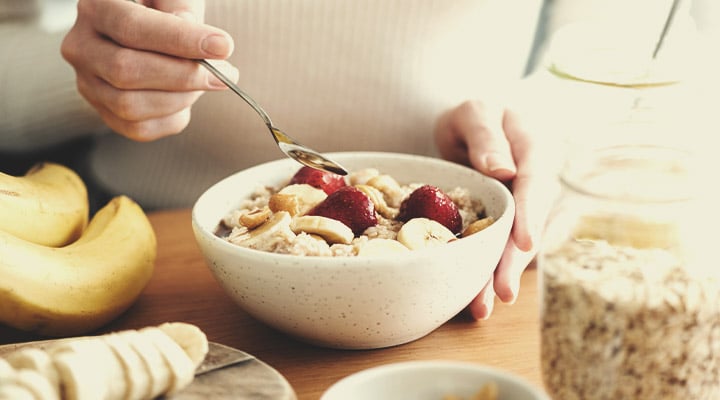
Does CBD Affect Hangovers?
So, where does CBD fit into the picture? Put simply, we don’t know; there’s no data from clinical trials to draw from. However, researchers are finding out a lot more about how CBD affects the body, and early studies offer some clues as to whether the cannabinoid deserves further study in the realm of hangovers.
What Is the Endocannabinoid System and How Is It Related to Hangovers?
To understand how CBD operates in the body, it helps to develop a basic understanding of the endocannabinoid system, otherwise known as the ECS. Deemed the "universal regulator" of the human body, this system helps to keep other biological systems in balance, from the nervous system to the immune system. Overall, the ECS consists of three key components: receptors, endocannabinoids (signalling molecules), and enzymes that build up and break down endocannabinoids.
Cannabinoids such as THC and CBD are able to interface with the ECS because they bear a structural resemblance to the endocannabinoids our bodies make. Whereas THC binds to the primary receptors of this system, CBD doesn’t have much affinity for them. Instead, it binds to peripheral sites and alters endocannabinoid levels by inhibiting certain enzymes.
Interestingly, alcohol also has an impact on the ECS. Animal research shows that short-term alcohol use reduces endocannabinoid levels[4] in the brain. Ongoing studies are exploring if CBD might work to boost endocannabinoid levels[5] by stopping enzymes from breaking them down. While human trials are needed to see if CBD affects hangovers, early research has pitched the cannabinoid in models of disease that overlap with some hangover symptoms.
The Relationship Between CBD and Headache/Migraine
An increasingly large body of evidence has linked the ECS to cases of migraine and headache. The theory of clinical endocannabinoid deficiency also implicates low levels of endocannabinoids in these conditions. As stated above, researchers are trying to figure out if CBD helps to boost endocannabinoid levels in the brain. If it manages to do so, this could theoretically form the basis of future research in the arena of alcohol-induced headaches.
The Relationship Between CBD and Inflammation
Alcohol drives inflammation in the body, and inflammation plays a key role in hangovers. This physiological cascade then results in feelings of fatigue and physical pain. Many ongoing studies are determining if and how CBD influences the inflammatory response. Large scientific reviews[6] have assessed if CBD and its analogues affect inflammation, and more relevant studies have looked to see if CBD manages to affect inflammation[7] in cases of alcohol-induced brain and liver damage.
The Relationship Between CBD and Nausea/Vomiting
Of all hangover symptoms, constant nausea ranks as one of the worst. Sometimes, every twist and turn can make you feel queasy, making simply getting out of bed an insufferable challenge. So, is CBD of any relevance in this regard? Again, there’s not enough data to give a definitive answer.
However, ongoing studies are testing Sativex, an oral spray containing equal parts THC and CBD, in models of nausea and vomiting[8]. Other studies are testing CBD, CBDA, and CBDA methyl ester in these conditions[9].
How Is CBD Consumed?
Although there’s a lack of research, some people still reach for CBD the morning after a night of heavy drinking. But what are the best ways to consume cannabinoids? Well, if you’re planning to take it for this purpose, you have plenty of choices. Check out the most popular ways to take CBD below.
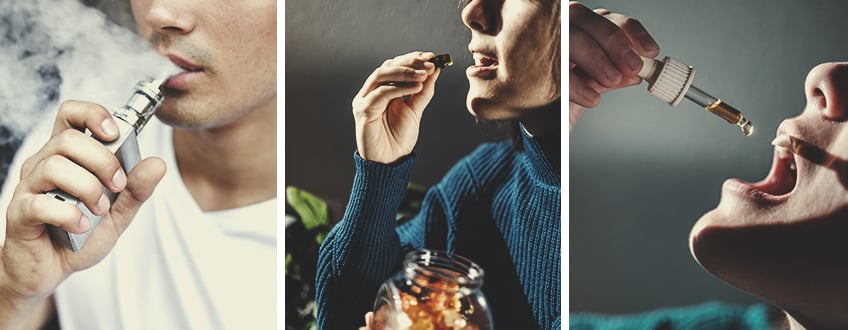
Inhalation
Smoking or vaping CBD rapidly introduces the cannabinoid into the bloodstream. Some users love the ritual of loading up joints and vapes with CBD flowers and concentrates. While vaping bypasses combustion (burning), both methods of inhalation come with their own risks.
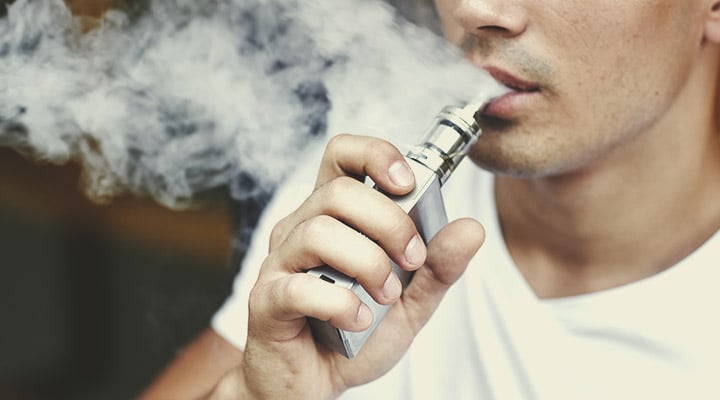
Oral
The oral route sends CBD through first-pass metabolism. The cannabinoid has to endure the throes of digestion and liver metabolism, and very little makes its way into the blood. Plus, if you have no appetite when hungover, you probably won’t enjoy scoffing down CBD-infused snacks.
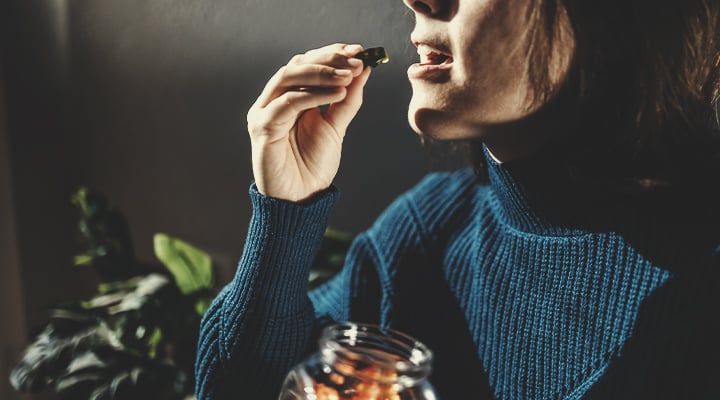
Sublingual
Sublingual administration refers to dropping CBD oil under the tongue and leaving it in place for around a minute. This allows the cannabinoid to diffuse across a thin layer of tissue directly into the bloodstream. This route bypasses the digestive system and doesn’t involve inhaling anything. If you can’t stomach the taste, drop a mint or piece of candy into your mouth at the same time.
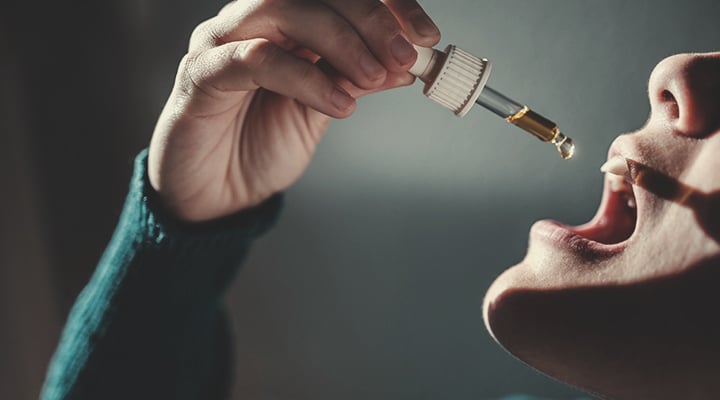
Does CBD Cause Its Own Hangover?
No. Cannabidiol doesn’t produce an effect anywhere close to that of excess alcohol. However, it does produce side effects in some people. If you happen to experience strong side effects from the cannabinoid, it could potentially make your hangover experience more unpleasant.
Side Effects of CBD
Potential side effects of CBD include:
| Dry mouth | Low blood pressure | Lightheadedness | Drowsiness |
| Diarrhoea | Fatigue | Drug interactions |
| Dry mouth | Low blood pressure | ||||||
| Lightheadedness | Drowsiness | ||||||
| Diarrhoea | Fatigue | ||||||
| Drug interactions | |||||||
|---|---|---|---|---|---|---|---|
CBD and Alcoholism: Examining the Relationship
Outside of the world of hangovers, researchers are currently testing CBD in different forms of addiction, including alcoholism. A 2019 review published in the journal Frontiers in Pharmacology looked at a collection of studies that tested CBD in models of alcohol use disorder[10]. Further research has set out to explore the potential of the cannabinoid when it comes to alcohol withdrawal.
Is CBD Legal?
The legality of CBD differs from country to country. In the United Kingdom, for example, CBD products, such as oils, are legal considering they contain no trace of THC[11]. However, CBD products in Switzerland can contain THC quantities below a 1% threshold. We highly recommend checking the legal status of CBD in your country before purchasing products.
Should You Take CBD When Hungover?
To put it simply: it’s entirely up to you. There’s no solid clinical evidence that CBD could help to reduce the symptoms of your hangover. However, early preclinical evidence does offer clues as to what future studies might determine. If you think CBD can help take the edge off, and you can stomach it, then go ahead and see if it works for you.
- Hangovers | National Institute on Alcohol Abuse and Alcoholism (NIAAA) https://www.niaaa.nih.gov
- Alcohol Poisoning Deaths | VitalSigns | CDC https://www.cdc.gov
- Dietary Nutrient Intake, Alcohol Metabolism, and Hangover Severity - PMC https://www.ncbi.nlm.nih.gov
- Short-term exposure to alcohol in rats affects brain levels of anandamide, other n-acylethanolamines and 2-arachidonoyl-glycerol - pmc https://www.ncbi.nlm.nih.gov
- Cannabidiol enhances anandamide signaling and alleviates psychotic symptoms of schizophrenia - PMC https://www.ncbi.nlm.nih.gov
- Cannabidiol (CBD) and its analogs: a review of their effects on inflammation https://www.sciencedirect.com
- Frontiers | Therapeutic Prospects of Cannabidiol for Alcohol Use Disorder and Alcohol-Related Damages on the Liver and the Brain | Pharmacology https://www.frontiersin.org
- Regulation of nausea and vomiting by cannabinoids and the endocannabinoid system - PMC https://www.ncbi.nlm.nih.gov
- Therapeutic Potential of Cannabidiol, Cannabidiolic Acid, and Cannabidiolic Acid Methyl Ester as Treatments for Nausea and Vomiting https://www.liebertpub.com
- Therapeutic Prospects of Cannabidiol for Alcohol Use Disorder and Alcohol-Related Damages on the Liver and the Brain - PMC https://www.ncbi.nlm.nih.gov
- Drug Licensing Factsheet- Cannabis, CBD and other cannabinoids https://assets.publishing.service.gov.uk


























